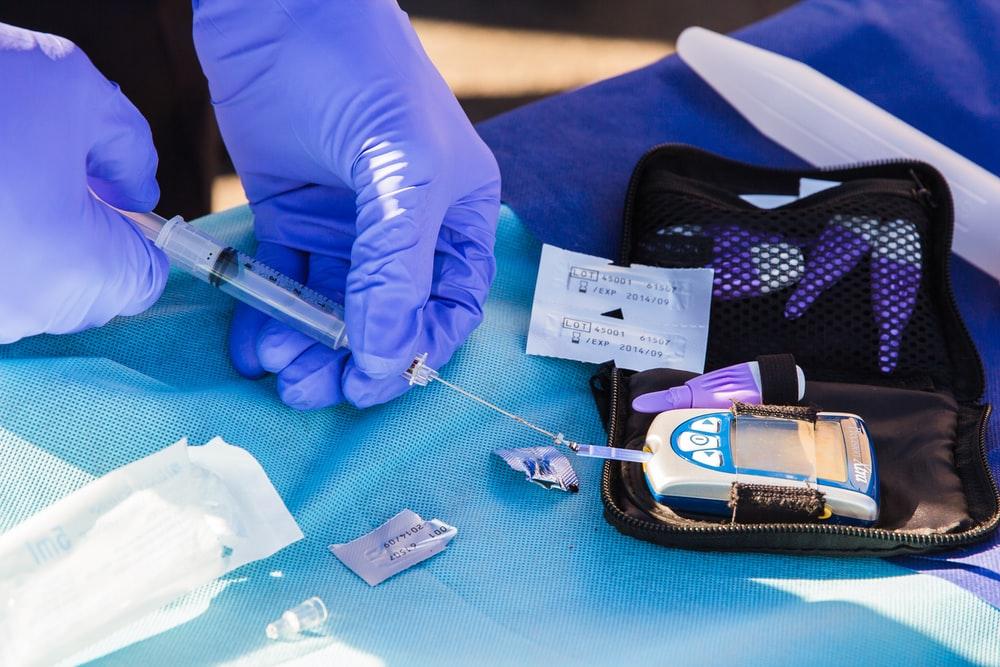Chris Stocker is a financial services professional and licensed insurance agent. He's also Owner and author of The Life of a Diabetic as well as Type 1 Detour. He's been writing about Diabetes related topics for over 10 years, and has been featured in HealthLine, Diatribe, Diabetes Advocates and JDRF.. He's been writing about Diabetes related topics for over 10 years, and has been featured in HealthLine, Diatribe, Diabetes Advocates and JDRF.
Home » Breastfeeding With Diabetes in 2025
Breastfeeding With Diabetes in 2025

Conor O’Flynn

Conor O’Flynn


Chris Stocker
To learn about Diabetes Life Solutions commitment to transparency and integrity, read our Editorial Disclosure
Last Updated on June 14, 2025
Childbirth leaves your hormonal landscape in a state of virtual ruin. Oestrogen and progesterone levels sink dramatically, while prolactin levels rise. That can lead to low energy, high blood glucose and postpartum depression. After nine months of skyrocketing blood sugar, you’re probably experiencing a few new symptoms. You might even be one of the many mothers who develop diabetes during pregnancy or lactation. And during this situation breastfeeding and diabetes would look like the worst nightmare for the mother. Many women think of can diabetics breastfeed?
When you start breastfeeding, you have probably lost track of your baseline and how to balance it. As your body starts to shed the extra weight it shored up for the baby, your diabetes is likely to improve faster than you expect. That doesn’t mean instant benefits, though. With your blood sugar levels in a constant state of flux, it can be difficult to find a diet and insulin regimen that fits. Fortunately, there are ways around that.
 Photo by Dave Clubb via Unsplash
Photo by Dave Clubb via Unsplash
Medication and Baby Safety
Some medications pass into breast milk while others have little effect. Metformin has been found to develop average breast milk levels of 0.28%, a negligent amount that nonetheless passes into the blood of babies. For that reason, some doctors recommend diabetes patients switch to a safer medication or avoid breastfeeding entirely, particularly if they have premature babies. So before you think of breastfeeding and diabetes, consult with your doctor first.
Given the limited amounts of the drug found in breastmilk, however, many medical practitioners are comfortable with prescribing Metformin to lactating parents. It has become a first-line treatment for diabetic mothers, partly because not all type two diabetes medications have been studied during breastfeeding. Insulin molecules are too large to pass between your bloodstream and breastmilk, so the drug is generally considered safe for nursing mothers. So if you were among those women thinking about can diabetics breastfeed, here is the answer.
Meeting Changing Insulin Needs
 Photo by Matt Chesin via Unsplash
Photo by Matt Chesin via Unsplash
Some studies have found that nursing mothers typically experience a 34% increase in their insulin needs after childbirth, but for most, insulin dosages return to their pre-pregnancy requirements within only a week. However, not all research has produced the same results. In some cases, patients needed less insulin for a full six weeks. That changed yet again for breastfeeding parents, who needed 13% less insulin than other postpartum patients. And a bit of relief for mothers thinking about breastfeeding and diabetes.
With glucose levels in flux simultaneously, your first six weeks after birth can be difficult. Studies can only give you a broad stroke picture of what you can expect. They cannot give you a precise treatment program. That is something you have to work out with your doctor one day at a time through trial and error.
Coping with Exercise
Breastfeeding consumes more energy than you might think, so nursing might require a diet adjustment to cover all those used up carbohydrates. Keep a glucose source nearby when you nurse and keep your healthcare team informed of any changes in your insulin dose. If you need to limit the speed of your weight loss, you’ll have to monitor your diet closely, bearing in mind that you’re using more energy than you did before you fell pregnant. Work with your medical professional to create an exercise plan that’s tailored to your needs.
Milk Supply
Mothers with ‘Type 1 Diabetes’ tend to stop breastfeeding sooner than others, and their reasons aren’t always within their control. Women with diabetes are prone to reduced milk supply, which seems to be linked to insulin metabolism. In fact, poor milk production is 2.5 times more likely to occur in those with gestational diabetes. Diabetes and breastfeeding might look scary but is actually not.
Lactation is based on supply and demand. The sooner supply follows demand, the better milk production will be, so simply nursing more and using a power pump can stimulate your body’s need to make more milk. Breast massage and compression may help as well. Good glycemic control will also improve your prolactin concentrations. Monitoring your glucose levels has never been this important.
Coping with Weight Loss
 Photo by Bill Oxford via Unsplash
Photo by Bill Oxford via Unsplash
As you lose your baby weight, your blood sugar levels will change, but you need to manage more than just your medication. It is considered safe for diabetes patients to cut 500 calories at a time, so while your appetite might not be at its best, you’ll still need to avoid dramatic changes to your weight. Your insulin sensitivity should improve early, so stay alert to your body’s needs.
Carbohydrates cause insulin release, so keep an eye on your carb balance. Ideally, it should account for around 45% of your daily calories. To avoid sugar spikes, choose carbs that have gentler effects on your glucose. High fibre grains and fruits are better than white rice and pastries. Keeping your protein sources at a minimum of 30% of every meal will help stabilize you, too.
Regular exercise helps your body to use insulin more efficiently, so even if you’re exhausted, try to work some strength training into your day. Keep your blood sugar numbers steady by watching your hunger scale, keeping your fibre levels high, and doing 30 minutes of exercise each day.
Getting Around Diabetic Breastfeeding
Diabetes patients are more likely to experience problems with delayed milk supply and sucking reflex problems. The latter is often linked to preterm pre-eclampsia and can make nursing impossible. Touching the roof of the baby’s mouth should inspire the sucking reflex, but if the baby has a weakened lip seal or disorganized sucking pattern, it might be time to hire a lactation consultant. They can coach babies into developing the reflex. Diabetes and breastfeeding is an easy process you just need to understand your type and follow the process accordingly.
Accepting Help
Motherhood is tough, even for healthy parents, so don’t try to achieve perfection. It is okay to cry. It is okay to take a break. It’s even okay to accept babysitting offers from friends and family. Reaching out to others will keep you sane, and that benefit will pass directly to your baby. Happy children have happy mothers, after all. In today’s marketplace, there is also a host of paid professionals available to assist. Lactation consultants are nurses who educate and prepare couples for prenatal life, and they have all the nursing tips and tricks you could wish for. They might even have a few ideas for getting stable on your insulin.
Final Thoughts
You have probably heard all the benefits of breastfeeding. Nursed babies are less likely to develop asthma, obesity, and sudden infant syndrome. Mothers who breastfeed develop breast and ovarian cancer less often, so making an honest attempt at nursing is worth the trouble.

Conor O’Flynn
This article was written by Conor O’Flynn of O’Flynn Medical. Conor has helped new mothers with any breastfeeding issues for over two decades.
Find out how much life insurance with Diabetes Life Solutions costs



